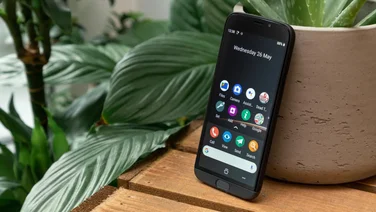To help us provide you with free impartial advice, we may earn a commission if you buy through links on our site. Learn more

The makers of the popular Adblock Plus extension have released a new mobile browser for iOS and Android that strips out ads for mobile surfers. The Adblock Browser arrives just as Apple is set to release iOS 9, which includes ad-blocking features in the default Safari browser.
The AdBlock Browser claims to only remove intrusive ads by default, but in our brief tests it was difficult to find any kind of advertising left in tact on a selection of commercial websites. Banner ads, pre-roll videos, overlays and ad-sponsored “related” stories were all removed from the sites we visited.
When you first run the browser, you’re invited to tweak with the settings and can even choose to block the “non-intrusive ads” if you wish. Other blocking options, which are switched off by default, include social media buttons, tracking agents and (ironically) messages that warn you about the consequences of blocking ads on certain websites.
The browser itself is fairly light on features. It can suggest URLs as you begin to type in the address bar and there’s a rudimentary bookmarking system. Adblock Browser uses the privacy-friendly DuckDuckGo search engine, which promises not to track your movements across the web or collect any personal information, in contrast to Google.
Google previously barred an Adblock Plus app from the Google Play store because the service “interfered with or accessed another service or product in an unauthorised manner”. With developers Eyeo now building the technology into its own browser, rather than blocking ads in third-party browsers, that objection appears to have been overcome and the new app is listed in the Google Play store.
The prevalence of ad-blocking technology on desktops and now mobile is a growing challenge for publishers who are dependent on ad revenue to fund websites. The end result may be more advertising disguised as editorial, according to the CEO of publisher Nylon. “To win the ad blocking issue we have to go deeper on native advertising, and the best way is to make native as organic as possible,” Paul Greenberg told Digiday.






